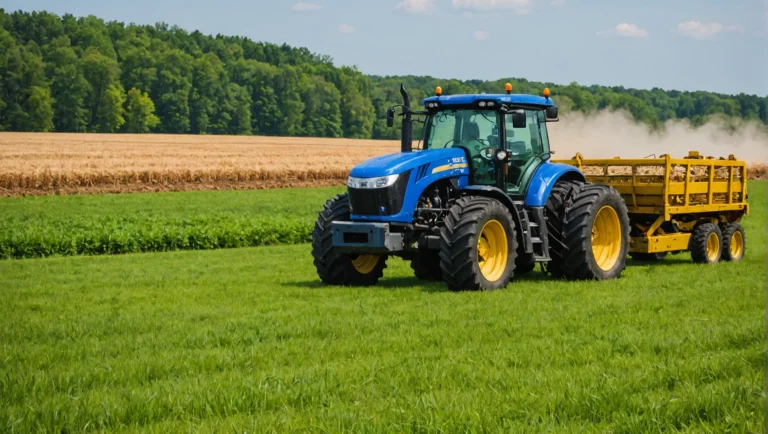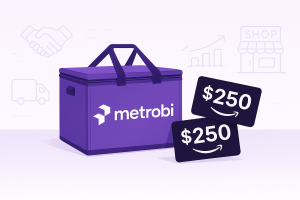Do you feel secure without farm equipment insurance?
Every year, unforeseen equipment damage leaves hundreds of business owners in financial jeopardy.
Having insurance in place offers more than just financial safety net and peace of mind.
Think comprehensive protection, quick claims, and avoiding legal headaches.
This guide will break down the ten reasons every business needs this coverage right now.
Save 80% of delivery management time
We handle everything:
- Dedicated operations manager
- Real-time tracking dashboard
- Automated customer notifications
- Urgent issue resolution
Understanding the Coverage Benefits of Farm Equipment Insurance Policy
Comprehensive Protection
Farm equipment is expensive and vital for operations. Insurance provides comprehensive protection, ensuring repairs and replacements for damages. Accidental damage is common on farms. Operations can be impacted by severe weather, theft, and vandalism. An insurance policy can cover these scenarios, securing your investment.
Equipment breakdown is another big issue. Mechanical or electrical failures can stall business. Adding coverage for this ensures repairs are handled swiftly. This minimizes downtime and financial losses.
A useful approach is blanket coverage. This covers all farm personal property under one limit, adjusting with fluctuating values.
Liability Coverage
Legal claims can arise from equipment use. Liability coverage protects from these claims, safeguarding your business assets. This coverage includes third-party injury claims, which can be costly.
Legal fees and medical bills can add up. Liability coverage pays these expenses. This ensures your business remains financially stable during legal issues. For farms selling products, product liability can be crucial. It covers claims if a product causes harm.
Securing liability protection is essential from the moment you start your business. By obtaining coverage right away, you can prevent gaps, avoid unexpected financial burdens, and reduce professional risks with insurance.
Business Continuation
Equipment downtime can halt operations, impacting income. Insurance offers quick claim processing, reducing this downtime. This is crucial for business continuity.
Some policies cover income loss from equipment issues, a significant advantage. Rental reimbursement for machinery adds another layer of protection. It ensures operations continue while equipment is repaired or replaced. Ensure your agricultural success by identifying the leading manufacturers of agricultural machinery to equip your business with superior quality tools.
Efficient claims processing is key. You should choose insurers known for their claim efficiency and review experiences of others to ensure this criterion is met. Quick response times are essential.
When to Get Farm Equipment and Car Insurance
Many wonder, “Why get insurance when starting a business?” Risks are inherent in any farming operation, making insurance essential from day one. Early coverage shields your investments from unpredictable occurrences. Considering the unpredictable nature of farming, is obtaining a loan for agricultural machinery a strategic move for securing the necessary equipment? Delve into the advantages and possibilities to ensure a wise choice for your enterprise.
Waiting to insure can be costly. Unforeseen damages can happen without warning. Having insurance ensures you are covered when needed most. Early farm equipment and car insurance purchase highlights responsibility. This is attractive to stakeholders and partners.
Reasons Businesses Choose Self-Insurance
Some businesses opt for self-insurance instead of policies. They do this by setting aside funds for damages or losses. This can benefit large operations with sufficient cash flow to cover potential losses.
Self-insuring may lower future costs. It avoids premiums and gives control over funds. However, the risk of self-insurance is significant. Without proper management, unexpected damages can heavily impact finances.
Experts often caution small or medium operations against self-insurance. The unpredictability of agricultural risks and extra expense often outweighs its benefits. It’s critical to evaluate risk tolerance and financial capacity.
Metrobi is transforming farm deliveries
Specialized solutions for farm businesses:
- Farm-trained drivers
- Proper handling equipment
- Peak day delivery support
- 23% average cost reduction
Evaluating Common Risks Without Farm Equipment Insurance
Financial Loss Due to Unforeseen Damage
Farms rely on equipment like tractors and harvesters, which are costly to fix or replace. Without insurance, unexpected damages mean paying out of pocket. Natural disasters or thefts could lead to sudden expenses that strain finances. This is true even if the equipment isn’t fully lost. Small incidents can lead to big repair bills, too. Considering the financial risks, weighing the decision between leasing versus purchasing farm equipment is crucial in managing potential costs effectively.
Risk of Bankruptcy
Without insurance, these costs can drive a farm into debt. Equipment damages can quickly snowball into financial disasters. Farms might not have the cash to handle the replacement cost of big repairs, forcing them to take on debt or even face bankruptcy. Financial stability hinges on having a safety net to cover these risks.
Legal and Regulatory Challenges
Operating without farm equipment insurance can lead to serious legal problems. Many areas have rules mandating certain insurance coverages. Ignoring these rules can result in hefty fines. Even if damages occur without direct fault, legal responsibilities can still fall on the farm owner’s equipment.
Legal Expenses
In cases of accidents involving farm equipment, the legal costs can pile up. Lawyers, court fees, and settlements need funding. Without insurance, these payments come straight from the farm or tractor insurance it’s funded. Covering these costs can drain resources rapidly, affecting the overall business.
Operational Delays and Disruptions
Equipment and farm equipment breakdown(s mean downtime. When a machine fails, work stops. This results in delays and can mess up schedules. Farms lose precious time, potentially affecting harvests and sales, and hurting the bottom line. Seeking farm machinery components? Discover 3 strategies to address the shortage of parts and ensure your operations remain uninterrupted.
Revenue Loss
Every hour equipment remains idle translates to lost revenue. Without insurance, replacement cost coverage renting replacements becomes an added burden. The financial hit from operational halts can set a business back for seasons. This makes managing risks crucial to sustain operations and financial health. Discover the indispensable agricultural machinery that can keep your farming operations running smoothly and efficiently.
Comparing Farm Equipment Insurance Providers for Better Value
Assessing Coverage Options
In our testing, finding the best value starts with exploring coverage options. Providers often vary in their offerings. Diversified plans are ideal as they cover different risks.You can look for plans including weather damage, theft, and liability coverage. Some providers offer extras like roadside assistance or equipment rental. These added perks can save costs during emergencies.
Evaluating Provider Reputation
Reputation matters when picking an insurance provider. It reflects their reliability. Check ratings and reviews from real customers. They offer insights into customer satisfaction. Providers with strong reputations often have efficient claim settlements. Fast processing ensures equipment is back up quickly.
Understanding Terms and Conditions
Terms and Conditions are often overlooked. Yet, they’re crucial. You should go through them slowly, checking for clarity and transparency. You should watch out for hidden fees. Extra charges can add up and affect the total cost of coverage.
Some providers make terms easier to understand. They simplify legal jargon making it less confusing for business owners.
After assessing these aspects, Provider A comes out on top. Their coverage is more comprehensive. Customer reviews are strong. Claim settlements are swift. Terms are clearer with no extra fees hidden in the fine print. This combination makes it the better value for business owners.
Understanding Cost Factors in Farm Equipment Insurance
-
Costs are influenced by equipment value and age, usage type, and geographic location.
-
Higher risks lead to increased premiums.
-
Coverage needs differ by equipment and farming activities.
Farm equipment insurance is complicated. Costs can vary based on several factors.
Equipment Value and Age
Premium Calculations
The value and age of equipment are key in calculating premiums. Newer, high-value equipment often leads to higher insurance costs. This is because replacing or repairing them can be expensive. Insurance for farm machinery generally costs between $4 to $6 per $1,000 of valuation. This works out to about 0.5% of the equipment’s average value. For instance, a $1,500,000 blanket coverage might cost $4,600 annually. This is $3.06 per $1,000 of coverage.
Risk of Older Equipment
Older equipment may have different issues. They might be cheaper to insure, but coverage can be more limited. Insurers might see them as unreliable and more prone to fail. This can mean more frequent claims. Limited parts availability and higher maintenance costs can further complicate coverage.
Usage Frequency and Type
Intensity of Use
How often and how equipment is used affects insurance costs too. Heavy usage borrowing equipment or certain types of jobs can make premiums go up. For example, crop spraying or livestock handling can be riskier. The more a machine operates, the more likely it is to have broken parts or need repairs.
Role of Farm Size
The size of a farm also matters. Larger farms generally have more equipment and employees. This increases the overall risk and can push insurance costs up. Discover the top 10 crucial pieces of agricultural machinery that every large-scale operation should consider to maintain an efficient and productive farm.
Geographic Location
Physical Risks
Geography also plays a role. Farms in high-risk areas can have higher premiums. Areas prone to natural disasters like tornadoes or hurricanes require more coverage. This is because the likelihood of loss is higher.
Proximity to Services
Also, farms in remote areas could face higher insurance costs. Emergency services might take longer to arrive. In the event of a fire, equipment failure or a farm accident, delayed response times can increase damage or loss.
Customization and Coverage Type
Tailored Policies
Insurance policies offer flexibility. Farmers can customize them to fit specific needs and budgets. Options like blanket versus scheduled coverage exist. Blanket coverage includes all insurable property up to a certain amount. Scheduled coverage pinpoints specific items with set coverage limits. Keep your agricultural operations thriving by mastering farm machinery maintenance, ensuring all your equipment is protected and functioning optimally.
Expert Opinions
For farmers weighing these options, recommendations vary. “The Fundamentals of Farm Insurance” can provide guidance on choosing appropriate coverage.
Additional Considerations
Customizing coverage based on specific factors can help farm owners get the most value from their insurance. But it’s crucial to thoroughly assess each element, from types of tasks performed to geographic risks.
Understanding these factors is vital. Each component impacts costs and coverage availability. Making informed decisions requires evaluating both the short and long-term needs of one’s farm and ranch policy.
Ready to Protect Your Assets?
Farm equipment insurance is essential. It offers peace of mind with comprehensive protection and swift claims for business continuity while safeguarding against financial risks and legal issues. Now’s the time to evaluate your current, equipment breakdown coverage, and see if it meets your business needs. You should compare different providers and weigh their offerings and reputation. Pinpoint specific coverage needs, and talk with an expert who can tailor a plan for you.














